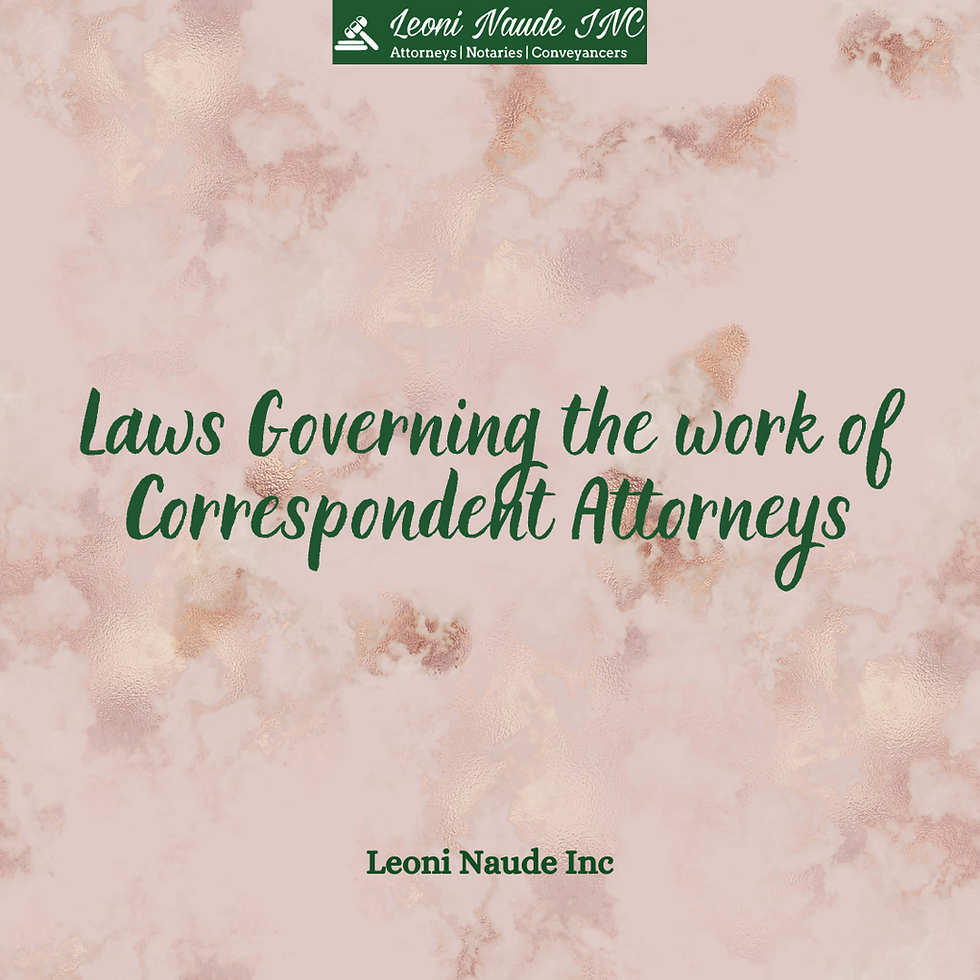Introduction
In South Africa, the legal profession, including the roles and responsibilities of correspondent attorneys, is governed by a specific set of laws and regulations. Correspondent attorneys play a critical role in facilitating legal proceedings across different jurisdictions within the country. This blog post delves into the regulatory framework that outlines the practice and duties of correspondent attorneys in South Africa.
Legal Framework Governing Correspondent Attorneys
Correspondent attorneys in South Africa are primarily regulated under the Legal Practice Act 28 of 2014. This Act consolidates and reforms the laws relating to the legal profession and sets out the standards for all legal practitioners, including correspondent attorneys. The Act aims to ensure that all legal practitioners are competent, professional, and accountable.
Role and Responsibilities of Correspondent Attorneys
The primary role of a correspondent attorney is to act as a representative for attorneys who are based in other jurisdictions. They handle various local legal tasks such as filing documents, attending court proceedings, and facilitating communication between courts and out-of-town attorneys. This role is crucial in a country where legal jurisdictions are tightly bound to specific geographic areas.
Regulatory Bodies and Compliance
Correspondent attorneys, like all legal practitioners in South Africa, must be registered with the Legal Practice Council. This body oversees the conduct of legal practitioners and ensures compliance with the standards set out in the Legal Practice Act. It also deals with complaints and disciplinary matters involving correspondent attorneys.
Ethical Considerations
Ethics play a significant role in the regulation of correspondent attorneys. They are expected to uphold the same ethical standards as other attorneys, which include integrity, confidentiality, and professional conduct. Breaches of these ethical guidelines can lead to disciplinary actions, which could include fines, suspension, or even disbarment from practice.
Challenges and Best Practices
While the framework is well-defined, correspondent attorneys often face practical challenges such as managing communication across different regions and ensuring timely delivery of services. Best practices in this field include maintaining clear and open communication channels, thorough knowledge of local laws and regulations, and timely execution of assigned tasks.
Conclusion
The work of correspondent attorneys in South Africa is governed by specific laws and regulations that ensure their practice aligns with the high standards expected in the legal profession. The Legal Practice Act 28 of 2014 and the oversight of the Legal Practice Council play pivotal roles in maintaining these standards. As the legal landscape continues to evolve, correspondent attorneys remain essential in bridging the gap between legal jurisdictions, ensuring effective and efficient legal practice across South Africa.


























Comentarios